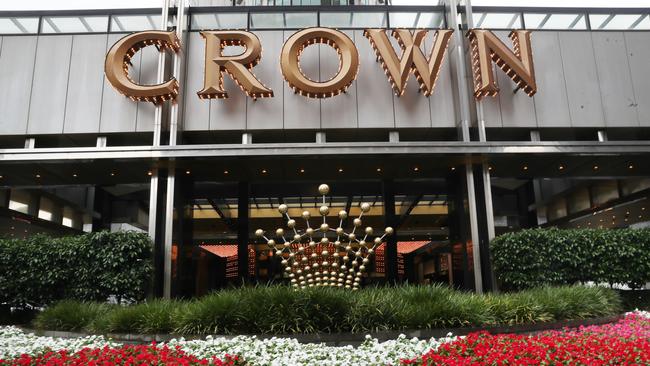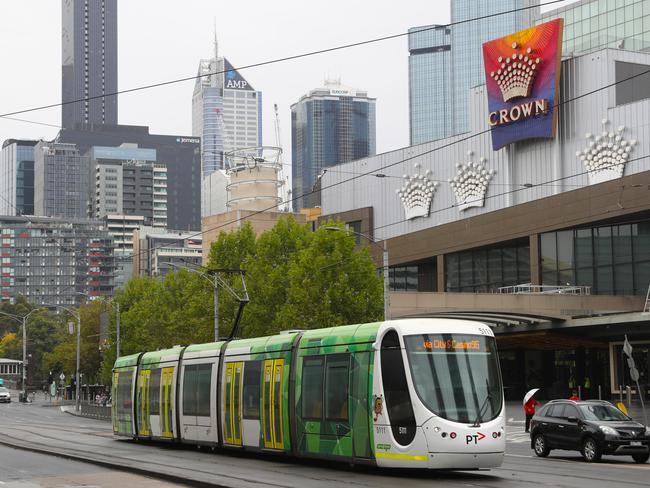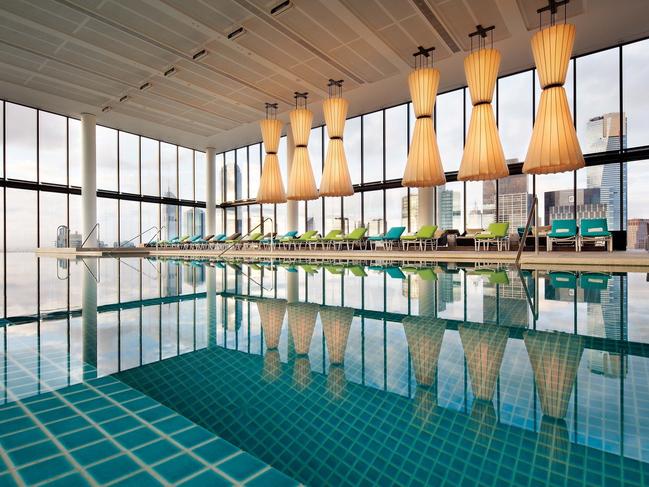Crown Melbourne launches legal action over flammable cladding on Southbank hotel
Crown Melbourne has taken legal action against a group of architects, engineers and consultants after it was forced to undertake costly aluminium cladding rectification works on one of its luxury Southbank hotels.

News
Don't miss out on the headlines from News. Followed categories will be added to My News.
Crown Melbourne has launched legal action against a group of architects, engineers and consultants, after being forced to engage in “expensive” rectification works to replace flammable cladding on one of its luxury Southbank hotels.
Crown is attempting to recoup the costs from parties who were in charge of the project, after the City of Melbourne issued a building order against the casino and hotels giant.
The contents of the legal action are contained in a writ filed with the Supreme Court of Victoria last month.
The document outlines five defendants – architecture firm Bates Smart, engineer consultants Aurecon and Aecom, which Crown said acted as their facade engineer and building surveyor respectively, fire engineer company Thomas Nicolas and environment consultant Greencap.
In a statement provided to the Herald Sun, a Crown Melbourne spokesperson said the business filed the writ to “preserve its legal rights to recover costs” from the replacement of the cladding.
“Those proceedings have not been served against any parties,” they said.

Crown Melbourne – a luxury resort complex featuring accommodation, a casino, dining, entertainment and shopping on the banks of the Yarra River – got the tick of approval to carry out the construction of a third hotel, named Crown Metropol, at the corner of Clarendon St and Whiteman St in 2007.
The project involved the construction of a 4.5 star hotel, a podium structure linking the hotel to adjoining buildings and an office development in the podium for Crown College – a vocational school specialising in hospitality – and Crown Administration.
An occupancy permit was issued by the building surveyor in 2010.
The project used aluminium composite panel (ACP) cladding – a material Crown says was highly flammable and did not comply with Australian building standards.
The City of Melbourne issued a building order more than a decade later in 2021, requiring Crown to remove and replace all of the combustible ACP cladding on the building.
The cladding replacement process was finished by mid-2023.
The court document filed by Crown says they suffered “loss and damage” as the result of breaches by the group of workers.
“At all material times if ACP cladding which did not comply with the requirements of the Building Code of Australia was installed on the project, there were risks that Crown … would be obliged to undertake expensive rectification works, suffer harm in the form of economic loss …(and) there would be an increased risk of fire spread in the buildings forming part of the project.”
“It is appropriate for the scope of the (worker’s) liability to extend to any loss or damage suffered by Crown.”

The original writ listed builder Lendlease as a defendant, but Crown has since withdrawn legal action against the construction company in an amended court document.
It’s not the first time safety engineer company Thomas Nicolas has had legal action brought against it, with the business found to be among other workers to blame for a flammable cladding blaze in Docklands in 2014.
The Victorian Civil and Administrative Tribunal in 2019 found the company was responsible for the largest portion of the almost $6m it cost to reclad the Lacrosse apartment tower on Latrobe St.
Thomas Nicolas also signed off on Neo200, the Spencer St apartment tower that caught alight – fuelled by flammable cladding – in 2019.
Cladding Safety Victoria has previously warned there was a “widespread and systemic” failure by architects, fire engineers and building surveyors to comply with rules around building design, leading to the installation of non-compliant combustible cladding on residential buildings across the state.
The government agency reviewed the detailed building plans and permits of more than 800 privately owned apartment buildings in a report released last year.
It found combustible ACP and extended polystyrene (EPS) material was specified in 75 per cent of them.
Originally published as Crown Melbourne launches legal action over flammable cladding on Southbank hotel




